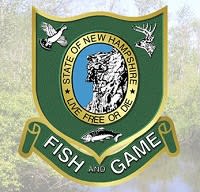New Hampshire Public Meeting on Proposed Stocking of Walleye in Moore Reservoir
OutdoorHub 06.24.13

The New Hampshire Fish and Game Department will hold a public informational meeting at 6 p.m. on July 22, 2013, at the Littleton Opera House, 2 Union Street, Littleton, N.H., to discuss the proposed stocking of walleye into Moore Reservoir. Moore Reservoir is an impoundment on the Connecticut River in the communities of Littleton and Dalton, New Hampshire; and Waterford and Concord, Vermont.
At the session, fisheries biologists will provide background on the proposed stocking activities, and there will be an opportunity for public comment and questions. This meeting will initiate the compliance process with the National Environmental Policy Act, which is overseen by the U.S. Fish and Wildlife Service.
“Walleye are currently only found in the Connecticut River from below the McIndoes Dam in Monroe, N.H., downstream into Massachusetts and Connecticut. Creating a fishery for them in Moore Reservoir will be a welcome opportunity for North Country and Northeast Kingdom anglers,” said Gabe Gries, a fisheries biologist with the New Hampshire Fish and Game Department.
This proposed stocking is a cooperative effort between the New Hampshire Fish and Game Department and the Vermont Fish and Wildlife Department. Walleye fingerlings would be raised at the Vermont Fish and Wildlife Department’s Bald Hill Fish Culture Station (Newark, VT) with the first stocking proposed for 2014. It is likely that over time, a successful self-sustaining walleye population in Moore Reservoir will also naturally populate the two downstream reservoirs (Comerford and McIndoes) that currently do not contain walleye.
“Moore Reservoir has the potential to produce trophy walleyes due to its excellent habitat and abundant forage,” said Jud Kratzer, a fisheries biologist with the Vermont Fish and Wildlife Department.
If you are unable to attend the public hearing but still wish to comment on the proposal, email your comments to Gabe Gries at Gabriel.Gries@wildlife.nh.gov or call 603-352-9669.
For directions to the Littleton Opera House, visit http://www.littletonareachamber.com/opera_house.php
Fisheries research and fish stocking activities in New Hampshire are funded by fishing license sales and the federal Sport Fish Restoration program, funded by an excise tax on the purchase of fishing tackle and motorboat fuels.

